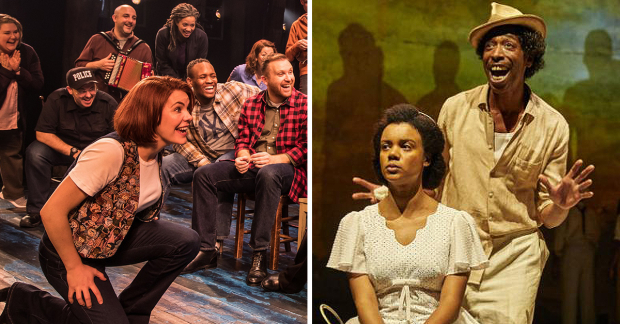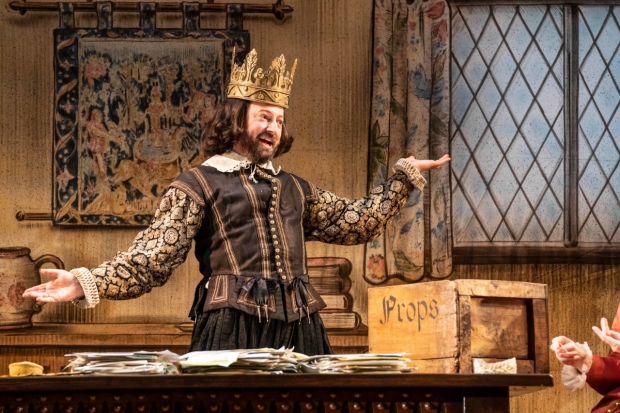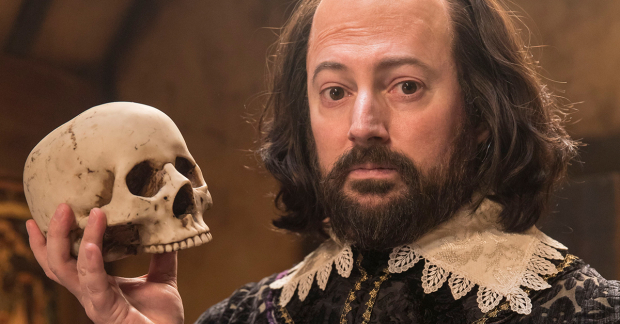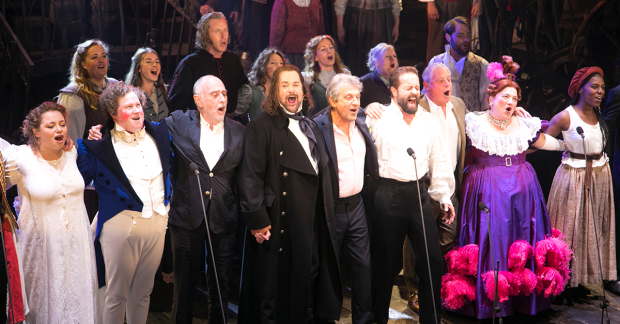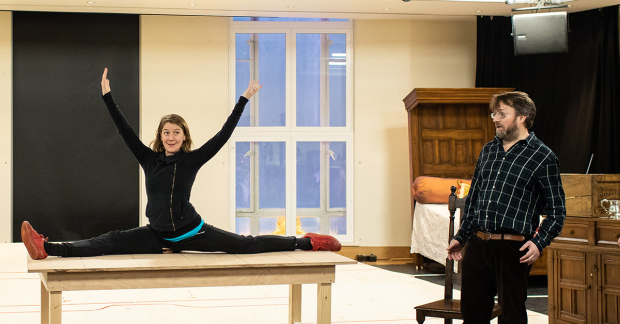Review: The Upstart Crow (Gielgud Theatre)
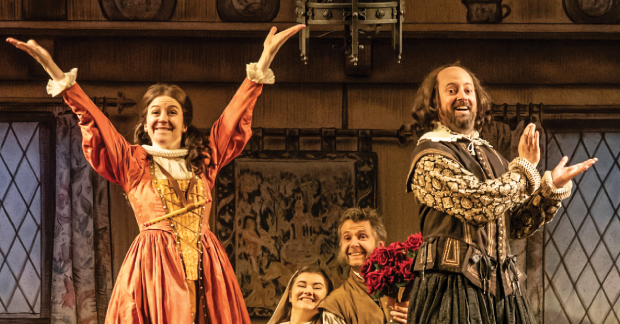
© Johan Persson
It's hard to resist the delirious silliness of Ben Elton's The Upstart Crow – an imagined life of Shakespeare that reconfigures the genius of British theatre as a harassed commuter from Stratford-upon-Avon suffering from writer's block. As a storm raged around the theatre on a
Saturday matinee, the pleasure and warmth emanating from a packed preview audience was in itself a testament to the affection it engenders.
This play – like the TV sitcom from which it sprang – deserves the love lavished upon it. It is, it's true, full of a lot of daft gags about bottoms and codpieces and a fair amount of politically incorrect historical hindsight about BAME casting and the conditions of the Elizabethan
stage. But it taps beautifully into two strong British traditions of writing: the immaculately conceived vaudevillian sight-gag and the cod historical drama, while revealing great knowledge of the Bard himself. And any show that features a sad-faced, tap-dancing bear,
making regular appearances from the wings, gets my giggling vote.
It helps that Shakespeare is played here, as on TV, by David Mitchell, a comic actor with no previous stage credits but with a real gift for being both put-upon and sardonic. His good-natured presence, and perfect timing, ground the play in all its whimsical absurdity, and
create a character at once vain ("I'm not going bald. My hair's just shy"), preposterous and endearing.
We meet his Shakespeare in London, where he is struggling to write a hit after the so-called Problem Plays. "I think we all know what the problem was", says his servant Bottom (a wonderfully dour Rob Rouse). "They were shite". His landlady's daughter, Kate (a sparkling
Gemma Whelan) longs to be an actress but is prevented by the conditions of the time. "You're a girl", Mitchell drawls contemptuously. "For you not to feel left out, they'd have to close the world".
She's also trying to get Shakespeare to put pen (with a very long feather) to paper by persuading him to get in touch with his emotions, and leaving texts such as King Lire lying around in the lavatory.
This play provides a plot of sorts, as Shakespeare flings himself on the mercy of his two neglected daughters; Helen Monks as Susanna and Danielle Phillips as Judith pitch up to point out their father's general uselessness in strong Birmingham accents and performances that brim with loving mischief. There's also a subplot which involves a pair of Egyptian Coptic Christian twins shipwrecked in this "divided, embittered and soggy land" and forced to conceal their true identity by adopting disguises as a boy (Rachel Summers) and a girl (towering Jason Callender). I think we can all guess where that is heading.
The scene is completed by the arrival of the crazed Puritan doctor John Hall, who falls for Kate and – in a further Malvolio-style subplot – capers around the stage wearing ever larger "puffling pants" and a huge curving codpiece. In Mark Heap's capable hands (playing a
different role than on TV), his every exit and entrance is an event.
All the performances are beautifully pitched, switching between broad comedy and Shakespearean pastiche with ease, and Sean Foley's direction (on Alice Power's deliberately simplistic set) swings everything along with brisk efficiency and sensitive timing. The play's deep affection for all things Shakespearean shines through in wonderfully funny gags that serve as theatrical critique, including jokes about the way that putting on a tiny mask will render anyone (even a bear) unrecognisable, just as hiding behind a tiny tree makes them invisible.
My favourite moments were invariably when the plot stopped, and the cast just talked – often in a mad, made-up Elizabethan language of "botty buttocks" and "hang the fuzzcock on. It is entirely captivating. As Shakespeare himself might have put it, a palpable hit.



